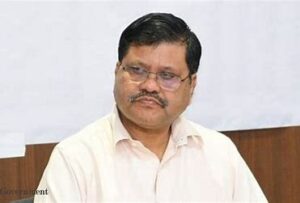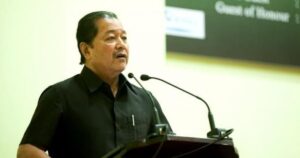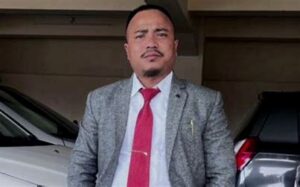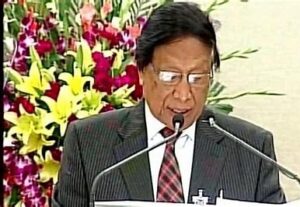In the dynamic political landscape of Arunachal Pradesh, Alo Libang stands out as a grounded and visionary leader who has been instrumental in reshaping the state’s healthcare and social welfare systems. As the Health and Family Welfare Minister of Arunachal Pradesh, Libang has championed policies that bridge the gap between urban healthcare advancements and rural realities, particularly for indigenous and remote tribal populations.
A member of the Adi tribe and a native of the picturesque Upper Siang district, Alo Libang’s journey from a small village to the state assembly showcases his deep-rooted commitment to community service. His focus on inclusive development, improved healthcare delivery, and cultural preservation marks him as a respected and influential figure not only in Arunachal Pradesh but also in the broader Northeastern region of India.
This blog explores the life, political evolution, contributions, and impact of Alo Libang, especially as the Health Minister, under whose leadership Arunachal Pradesh has witnessed significant strides in healthcare accessibility and infrastructure.
Early Life and Roots in the Adi Community
Born and raised in the serene village of Simong in Upper Siang district, Alo Libang grew up amid the customs, traditions, and challenges of the Adi tribe. The Adis are among the largest tribal groups in Arunachal Pradesh and are known for their community-centric lifestyle, festivals like Solung, and rich oral traditions.
Libang’s early life in the rural heartland allowed him to understand the socio-economic hardships that tribal communities faced—limited roads, absence of nearby hospitals, high child mortality rates, and lack of access to essential services. These formative experiences influenced his passion for public welfare, especially health, education, and tribal development.
After completing his education, Libang became actively involved in grassroots initiatives, gaining a reputation as a sincere and approachable leader dedicated to local causes.
Political Career and Transition to the BJP
Alo Libang entered electoral politics in 2009, contesting and winning the Tuting-Yingkiong constituency as a candidate of the Indian National Congress (INC). His win was significant, as it marked the entry of a candidate from a remote area who was driven by the real issues of the people.
His performance during his first term earned him admiration across party lines. He remained committed to the development of Upper Siang and surrounding districts, ensuring road connectivity, education, and healthcare became priorities.
In 2015, amid a major political shift in Arunachal Pradesh, Libang joined the Bharatiya Janata Party (BJP), aligning with the national trend towards developmental governance. His decision was supported by constituents who recognized the opportunities that could come from being part of the ruling party both at the state and central levels.
Libang retained his seat in the 2019 Arunachal Pradesh Legislative Assembly elections as a BJP candidate, securing the confidence of his people for a second term. He was soon entrusted with key ministerial portfolios, including Health and Family Welfare, Social Justice & Empowerment, and Women and Child Development.
Transforming Healthcare in Arunachal Pradesh
Alo Libang’s most significant contribution to date has been his leadership in the Health and Family Welfare Department. In a state where more than 60% of the population lives in rural or remote areas, providing equitable healthcare access is no easy feat. Yet, Libang has taken bold steps to ensure even the most isolated villages receive attention and medical support.
1. Addressing Geographical and Logistical Challenges
Arunachal Pradesh’s difficult terrain, with its steep hills, dense forests, and poor road connectivity, has historically made it hard to establish reliable healthcare infrastructure. Under Libang’s leadership, the government launched mobile medical units, telemedicine platforms, and health camps to reach far-flung areas.
He advocated for upgrading Primary Health Centres (PHCs) into better-equipped Community Health Centres (CHCs), hiring qualified doctors, and improving ambulance services in tribal belts.
Additionally, new sub-centres were set up in hamlets that previously required long walks to the nearest health facility—thereby reducing dependency on traditional remedies during medical emergencies.
2. Managing the COVID-19 Crisis with Local Sensitivity
During the COVID-19 pandemic, Alo Libang’s swift and organized response was widely acknowledged. Arunachal Pradesh, which shares an international border with China, faced significant risks due to cross-border movement and limited health infrastructure.
Libang’s ministry ensured early awareness campaigns, strict quarantine protocols, and timely testing mechanisms. The state set up COVID care centers in district headquarters, organized vaccine awareness drives in tribal languages, and collaborated with local influencers to counter misinformation.
He ensured that tribal and rural communities were not left behind in the national vaccination effort—resulting in impressive coverage across even the most remote regions.
3. Medical Education and Capacity Building
One of Alo Libang’s landmark achievements has been the establishment and strengthening of medical education infrastructure in the state. The Tomo Riba Institute of Health and Medical Sciences (TRIHMS) in Naharlagun was developed into a premier institution under his supervision.
TRIHMS not only trains future doctors and nurses from the state but also caters to patient needs with improved medical facilities and specialist services. Libang’s vision includes setting up more nursing colleges, paramedical training institutes, and telehealth centers to generate local employment and reduce the dependency on states like Assam or West Bengal for advanced medical care.
Promoting Indigenous Health Practices and Cultural Integration
Alo Libang, as a proud member of the Adi community, recognizes the importance of traditional tribal healing systems. He has consistently advocated for their integration into formal healthcare.
He supports research and documentation of tribal medicinal knowledge, encouraging cooperation between traditional healers and modern doctors. This approach is not only a recognition of tribal wisdom but also a step toward culturally sensitive healthcare that earns community trust.
Moreover, Libang has ensured that mental health—a taboo subject in many rural settings—receives policy-level attention. Campaigns around addiction treatment, youth counseling, and psychosocial care are being rolled out, particularly in areas affected by substance abuse.
Women and Child Health: A Personal Priority
As Minister of Women and Child Development, Alo Libang has overseen the implementation of Integrated Child Development Services (ICDS), POSHAN Abhiyaan, and schemes targeting adolescent girls.
Under his direction, the state has increased the number of anganwadi centers, improved the distribution of nutritional supplements, and launched sanitation awareness programs for young mothers. He has also focused on maternal health through institutional deliveries, antenatal check-ups, and transport assistance schemes.
Libang frequently emphasizes the importance of educating young girls and ensuring that tribal women have access to medical and financial resources.
Collaborations and National Partnerships
Alo Libang has successfully secured central assistance by ensuring smooth implementation of national health schemes like:
- Ayushman Bharat – PMJAY (providing health insurance to low-income families),
- Mission Indradhanush (universal immunization drive),
- National Health Mission (NHM),
- Rashtriya Bal Swasthya Karyakram (RBSK),
- And campaigns against tuberculosis and malaria.
He has also built relationships with institutions like UNICEF, WHO, and NITI Aayog, which have further strengthened Arunachal’s healthcare planning.
Future Roadmap and Vision
Libang continues to advocate for long-term reforms in the following areas:
- Digitization of health records and the launch of e-Sanjeevani services in rural PHCs.
- Promotion of public-private partnerships (PPP) to bring diagnostic labs and teleconsultation services to smaller towns.
- Establishment of trauma centers and emergency care units in accident-prone zones.
- Expansion of health insurance schemes to cover more tribal families under BPL categories.
Personal Traits and Public Image
Alo Libang is seen as humble, accessible, and firmly rooted in his cultural identity. He often travels to remote villages to inspect facilities and speak directly with beneficiaries. His speeches are marked by a clear understanding of both policy and people’s problems.
He balances his role as a modern policymaker with the values of his tribe, making him a bridge between tradition and transformation.
Conclusion: A True Public Servant for Arunachal Pradesh
In a region where access to healthcare has long been a challenge, Alo Libang’s leadership has brought hope, structure, and action. From creating opportunities for medical education to responding to global health emergencies and preserving traditional knowledge systems, his contributions reflect a balanced, future-oriented approach to governance.
As Arunachal Pradesh continues to evolve and integrate with mainstream development narratives, leaders like Alo Libang ensure that its tribal identity, healthcare equity, and grassroots welfare remain at the forefront.




